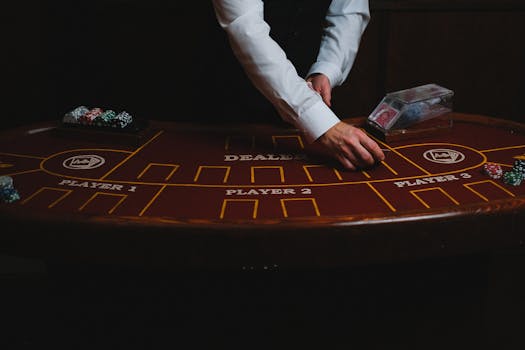The Hidden Math in Blackjack: A Guide for Beginners
Blackjack, often known as 21, is not only a game of chance but also a game of skill and mathematical strategies. Understanding the hidden math in blackjack can significantly improve your chances of winning and make your gaming experience more enjoyable. This guide will explore the main mathematical strategies used in blackjack, comparing their advantages and disadvantages, and providing practical examples to help beginners grasp these concepts effectively.
Understanding Basic Blackjack Strategy
Before diving into complex calculations, learning the basic strategy is crucial. The basic strategy in blackjack is a set of rules developed through statistical analysis to determine the best possible move based on your hand and the dealer’s upcard. These rules dictate when to hit, stand, double down, or split, aiming to reduce the house edge to less than 1%.
Advantages:
- Reduces the house edge considerably.
- Easy to learn and apply.
- Widely available in chart forms for reference during games.
- Does not guarantee a win, as blackjack is still a game of chance.
- Can be less effective in games with different rules or numbers of decks.
- Increases your chances of winning more significantly than basic strategy alone.
- Legal in most casinos, though frowned upon.
- Requires practice and concentration to apply effectively.
- Casinos may ban players they suspect of counting cards.
- Provides a more accurate measure of how favorable the deck is.
- Helps optimize bet sizes to maximize profits based on deck favorability.
- Requires quick and precise calculation, which can be challenging in a casino environment.
- More effective in games with fewer decks.
- Offers a deep understanding of the game’s dynamics.
- Helps in making the most mathematically advantageous decisions.
- Complex to calculate in real-time without assistance.
- Requires a deep understanding of both blackjack and mathematical concepts.
Disadvantages:
Practical Example: If you have a hand total of 16 and the dealer’s upcard is 9, basic strategy advises you to hit. This decision is based on the likelihood of improving your hand and the probability of the dealer having a stronger hand.
Card Counting in Blackjack
Card counting is a more advanced blackjack strategy that involves tracking which cards have been played to determine the likelihood of the next card being beneficial. This technique can tilt the odds in your favor by helping you make more informed bets and decisions during the game.
Advantages:
Disadvantages:
Practical Example: If a lot of low-value cards have been dealt, and fewer high-value cards (10s and Aces), a card counter might increase their bet, anticipating that the odds of drawing a high-value card are now higher.
Understanding True Count and Betting Strategy
While card counting gives you an edge, understanding how to adjust your bets based on the count—known as the true count—can maximize your advantage. The true count is calculated by dividing the running count (the total count you've kept so far) by the number of decks remaining in the shoe.
Advantages:
Disadvantages:
Practical Example: If your running count is +10 and there are approximately 2 decks remaining in the shoe, the true count is +5. A higher true count suggests a larger bet might be advantageous.
The Role of Probability and Expected Value
Advanced players often use probability and expected value calculations to refine their strategies further. Expected value (EV) tells you how much you can expect to win or lose on average over time by making a specific decision.
Advantages:
Disadvantages:
Practical Example: If the probability of winning a hand is 0.42 and the loss probability is 0.58, and you bet $100, the EV is calculated as (0.42100) - (0.58100) = -$16. This means on average, you can expect to lose $16 per $100 bet in this scenario.
Conclusion: Mastering the Math of Blackjack
The hidden math in blackjack offers players a fascinating opportunity to turn the tables on the casino. Starting with the basic strategy and moving up to card counting and beyond requires study, practice, and sharp mental acuity. For beginners, mastering these concepts can dramatically enhance your gaming experience and potentially your winnings. Whether you play casually or aspire to become a professional, understanding the mathematics behind blackjack is an invaluable tool. Remember, gambling should always be done responsibly, and strategies should be used as a guide rather than a guarantee. Start practicing these techniques in low-stakes environments and gradually build your skills. Good luck at the tables!

.png)





